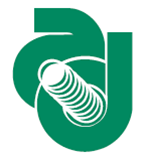Speaker
Description
Only a few years after the first direct detections by LIGO and Virgo, the gravitational-wave (GW) field is at a turning point, with a rapidly increasing number of confirmed signals – all from compact binary mergers so far. This dataset offers a wealth of information and allows scientists to study the populations of compact objects and the rates at which they merge, permitting tests of general relativity in a strong regime that had not been probed previously. This progress is made possible by the improvements in terms of sensitivity and duty cycle of the second-generation ground-based GW detectors, such as by advances in the analysis of the recorded data.
Key to this dataflow are the detector characterization and data quality activities, collectively referred to as “DetChar” in the following. The former help improve knowledge of the instruments while fighting against their dominant noise sources (transient or continuous), while the latter shape the dataset for the analysts, vet the GW candidates found either in low latency or offline, and contribute to mitigating the effect of noise when inferring the GW source properties from the detected signals.
With this joint abstract, the LIGO and Virgo DetChar groups present their main contributions to the GW detection effort during the third Observing Run (O3, April 2019 – March 2020). After that summary, we describe the main developments and improvements that are in progress to cope with the increase in detection rate expected for the fourth LIGO-Virgo-KAGRA Observing Run (O4), currently planned to start at the end of the year. The goals are manifold: to extend the data quality coverage, to decrease the latency of the main DetChar products and to automate as much as possible the different analysis – both their processing and their reporting.
| Collaboration | LIGO Scientific Collaboration and Virgo Collaboration |
|---|

